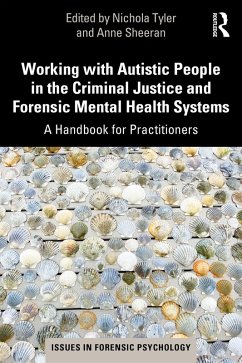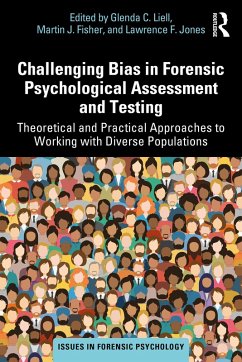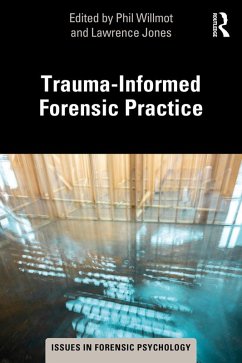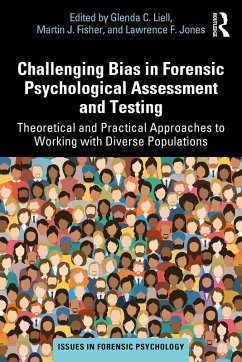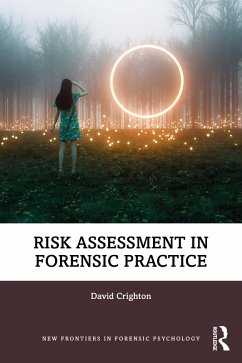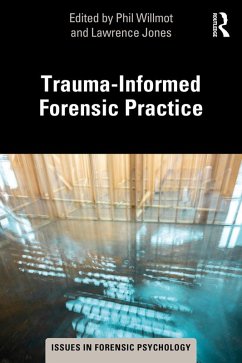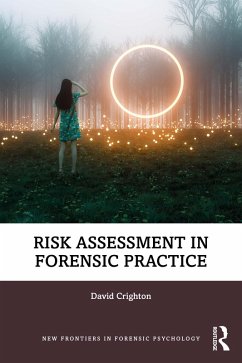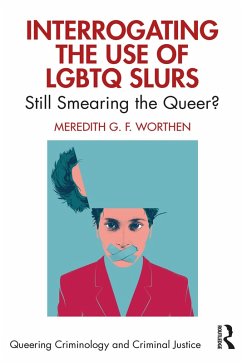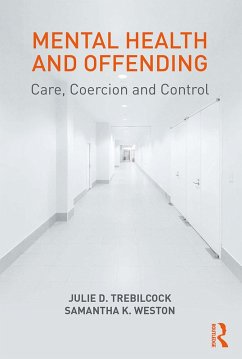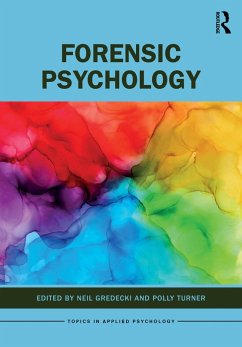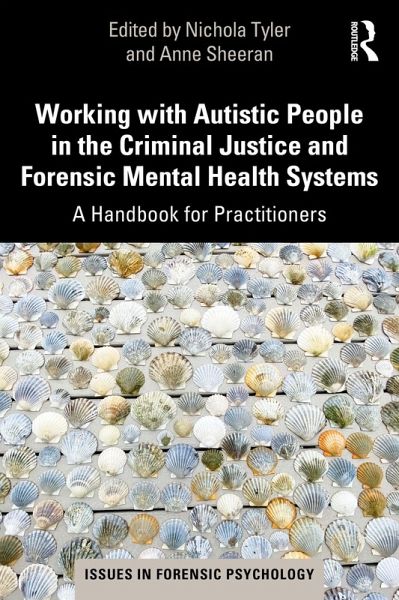
Working with Autistic People in the Criminal Justice and Forensic Mental Health Systems (eBook, ePUB)
A Handbook for Practitioners
Redaktion: Tyler, Nichola; Sheeran, Anne

PAYBACK Punkte
13 °P sammeln!
Working with Autistic People in the Criminal Justice and Forensic Mental Health Systems: A Handbook for Practitioners is the first book to focus specifically on best practice for working with autistic people in criminal justice and forensic mental health settings. Integrating current theory, research, and clinical practice, this book provides a practical guide for multidisciplinary practitioners working with autistic people who have offended, at all stages in their pathway, regardless of the nature of offending.The book draws together contributions from leading scholarly and clinical experts i...
Working with Autistic People in the Criminal Justice and Forensic Mental Health Systems: A Handbook for Practitioners is the first book to focus specifically on best practice for working with autistic people in criminal justice and forensic mental health settings. Integrating current theory, research, and clinical practice, this book provides a practical guide for multidisciplinary practitioners working with autistic people who have offended, at all stages in their pathway, regardless of the nature of offending.
The book draws together contributions from leading scholarly and clinical experts in the field of autism and forensic issues as well as the views of autistic people under the care of forensic services. Each chapter focuses on understanding the impact of autism throughout the criminal justice and forensic mental health system pathways, including how these systems are experienced by autistic people and their families and carers. Case studies and practical approaches are provided to demonstrate the application of best practice to working with autistic people in secure settings.
This book appeals to a wide audience within the fields of psychology, psychiatry, nursing, occupational therapy, speech and language therapy, as well as criminal justice staff (e.g., prison and probation), and will be the first of its kind to amalgamate theory, research, and practice in the area of autism and offending.
The book draws together contributions from leading scholarly and clinical experts in the field of autism and forensic issues as well as the views of autistic people under the care of forensic services. Each chapter focuses on understanding the impact of autism throughout the criminal justice and forensic mental health system pathways, including how these systems are experienced by autistic people and their families and carers. Case studies and practical approaches are provided to demonstrate the application of best practice to working with autistic people in secure settings.
This book appeals to a wide audience within the fields of psychology, psychiatry, nursing, occupational therapy, speech and language therapy, as well as criminal justice staff (e.g., prison and probation), and will be the first of its kind to amalgamate theory, research, and practice in the area of autism and offending.
Dieser Download kann aus rechtlichen Gründen nur mit Rechnungsadresse in A, B, BG, CY, CZ, D, DK, EW, E, FIN, F, GR, HR, H, IRL, I, LT, L, LR, M, NL, PL, P, R, S, SLO, SK ausgeliefert werden.




